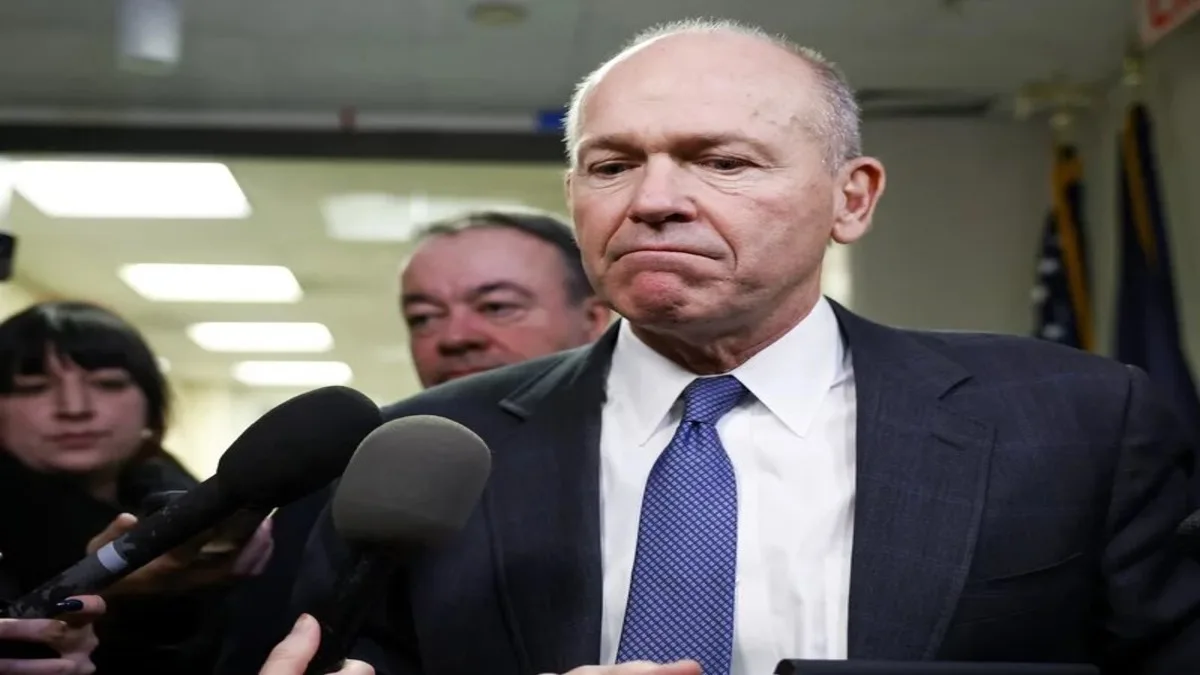Boeing CEO Dave Calhoun speaks to reporters on Capitol Hill on Jan. 24. “We have confidence in the safety of our airplanes,” Calhoun says. “And that’s what all of this is about. We fully understand the gravity.”Anna Moneymaker/Getty Images
Amidst the tumult of 2024, Boeing finds itself embroiled in a series of events that cast shadows over its reputation. Commencing with the startling incident involving a Boeing 737 Max 9 passenger jet shedding its rear door plug mid-flight in early January, the subsequent repercussions reverberated across both the aviation industry and public perception. The unsettling event, which saw the door plug hurtling into the premises of a Portland high school, prompted the Federal Aviation Administration (FAA) to mandate the grounding of analogous Boeing 737 Max 9 aircraft for an extensive period.
Echoes of past crises resounded as the aviation giant grappled with the aftermath. Remnants of earlier tragedies, including the fatal crashes of its 737 Max 8 jets in preceding years and a litany of issues with its 787 Dreamliner, compounded the mounting challenges faced by Boeing. The ramifications of the door plug incident rippled through airlines that had invested in fleets of the 737 Max 9, leaving them grappling with grounded aircraft and wary passengers upon their eventual clearance for operation.
However, the tribulations extend beyond mere technical malfunctions. Scrutiny intensifies as questions arise concerning Boeing’s adherence to quality and safety standards. The spotlight also falls upon the FAA’s oversight of Boeing and its intricate relationship with the U.S. government, underscoring broader concerns surrounding accountability and regulation within the aviation sphere.
#Boeing #AviationCrisis #FlightSafety #FAARegulation #IndustryAccountability
